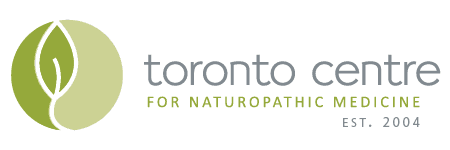Low Sperm Count
Having a low sperm count (oligospermia) is well-treated using naturopathic medicine.
Low sperm count is defined as having fewer than 15 million sperm per milliliter of semen (ejaculate).
There are many potential causes for having a low sperm count, including developmental conditions (e.g., undescended testes), sexually transmitted infections, autoimmune conditions, hormone imbalances (e.g., related to thyroid illness, adrenal gland function, tumour), genetic illnesses (e.g., cystic fibrosis), other health conditions (e.g., celiac disease).
Lifestyle and environmental factors that may lower sperm count include exposure to chemicals and heavy metals; use of alcohol, tobacco and recreational or prescription drugs (e.g., antibiotics, antifungals, ulcer medications); prolonged sitting or bicycling; and emotional stress.
Low sperm count is not a threat to your health, but is a potential cause of infertility, and may necessitate the use of costly assisted reproductive techniques (in vitro fertilization).
Seek professional healthcare if you are unable to conceive a child after a year of regular, unprotected sexual intercourse.
Symptoms of Low Sperm Count
Low sperm count has no symptoms, but you may suspect you have low sperm count if you (have):
- Are unable to conceive a child after a year of regular, unprotected sexual intercourse
- Pain, swelling or a lump in your testicle area
- Decreased facial or body hair (signs of a potential hormone imbalance)
Treatment of Low Sperm Count at Toronto Centre for Naturopathic Medicine
At Toronto Centre for Naturopathic Medicine, the goals of low sperm count treatment are to maximize number of sperm (i.e., increase number of sperm per millimeter of semen to 15 million or greater) and increase sperm motility (or activity level).
Conventional treatment for low sperm count may include surgery, antibiotics, hormone replacement; or to address infertility directly, assisted reproduction. These treatments may have short- or long-term side effects, and, in the case of assisted reproduction, are costly.
For this reason, you may choose to try natural treatment to possibly avoid use of conventional medications, or together with conventional medications in order to decrease dosages of conventional medications required to manage your constipation symptoms.
Naturopathic treatment of any chronic health concern must be recognized as a process that involves:
- Identifying specific treatment goals
- Development by your naturopathic doctor, of a thorough understanding of all factors affecting your health, including physical, psychological, emotional and lifestyle factors
- Development of a comprehensive treatment plan
- Implementation and maintenance of that plan through periodic monitoring and adjustment
At Toronto Centre for Naturopathic Medicine, a typical approach to treating low sperm count may be to:
- Identify and address underlying factors in your lifestyle (e.g., sedentary lifestyle, stress, recreational drug use, tight-fitting clothing) or general health (e.g., sexually transmitted infection, autoimmunity, hypothyroidism, low adrenal gland function) that may be contributing to development of low sperm count
- Ensure adequate nutrients for sperm production are present using nutritional counseling and nutritional supplements
- Stimulate production of healthy, “vigorous” sperm using botanical (herbal) medicines
Where appropriate, a number of therapeutic options are available, to be used alone, or more often in a complementary fashion, including:
- Nutritional counseling
- Nutritional supplements
- Metabolic detoxification protocols
- Botanical (herbal) medicines
- Acupuncture
- Homeopathy
- Bowen Therapy
- Suikodo™
- Hydrotherapy
- Exercise prescription
- Relaxation (meditation) training
- Lifestyle medicine and counseling
Treatments provided by naturopathic doctors are covered by most extended healthcare plans.
References
Low sperm count [Internet]. Mayo Foundation for Medical Education and Research; [cited 2015 Mar 31]. Available from: http://www.mayoclinic.org/diseases-conditions/low-sperm-count/basics/definition/con-20033441.


